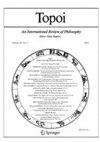多明戈斯·阿洛卡:莫桑比克的民族主义斗争之旅
IF 1.3
2区 哲学
0 PHILOSOPHY
引用次数: 7
摘要
本文通过分析多明戈斯·阿鲁卡的好战路线,对莫桑比克的历史和记忆争议进行了重新解读。它强调了阿鲁卡的政治道路,直到20世纪70年代初,阿鲁卡一直是一名民族主义者和政治犯。这项研究是基于在莫桑比克和葡萄牙进行的档案研究、对媒体的分析以及对其他民族主义者的采访。它提出了一个更密集和复杂的解释政治历史和社会记忆的一个鲜为人知的莫桑比克历史时期,殖民主义的结束和过渡到独立(1962年至1975年)。本文旨在对当代莫桑比克身份重建过程的更复杂的视角做出贡献。本文章由计算机程序翻译,如有差异,请以英文原文为准。
Domingos Arouca: um percurso de militância nacionalista em Moçambique
This paper offers a reinterpretation of disputes over history and memory in Mozambique from the analysis of Domingos Arouca's militant path. It emphasizes the political path of Arouca, a nationalist and political prisoner until the early 1970s. the study is based on archival research carried out both in Mozambique and Portugal, analysis of media, as well as on interviews carried out with other nationalists. It proposes a more dense and complex interpretation of the political history and social memories of a lesser known period of Mozambique history the end of colonialism and the transition to independence (1962-1975. This paper aims to be a contribution towards a more sophisticated perspective over the processes of identity reconstruction in contemporary Mozambique.
求助全文
通过发布文献求助,成功后即可免费获取论文全文。
去求助
来源期刊

TOPOI-AN INTERNATIONAL REVIEW OF PHILOSOPHY
PHILOSOPHY-
CiteScore
3.10
自引率
7.10%
发文量
47
期刊介绍:
Topoi''s main assumption is that philosophy is a lively, provocative, delightful activity, which constantly challenges our received views, relentlessly questions our inherited habits, painstakingly elaborates on how things could be different, in other stories, in counterfactual situations, in alternative possible worlds. Whatever its ideology, whether with the intent of uncovering a truer structure of reality or of soothing our anxiety, of exposing myths or of following them through, the outcome of philosophical activity is always the destabilizing, unsettling generation of doubts, of objections, of criticisms. It follows that this activity is intrinsically a ''dialogue'', that philosophy is first and foremost philosophical discussion, that it requires bringing out conflicting points of view, paying careful, sympathetic attention to their structure, and using this dialectic to articulate one''s approach, to make it richer, more thoughtful, more open to variation and play. And it follows that the spirit which one brings to this activity must be one of tolerance, of always suspecting one''s own blindness and consequently looking with unbiased eye in every corner, without fearing to pass a (fallible) judgment on what is there but also without failing to show interest and respect. Topoi''s structure is a direct expression of this view. To maximize discussion, we devote most or all of this issue to a single topic. And, since discussion is only interesting when it is conducted seriously and responsibly, we usually request the collaboration of a guest-editor, an expert who will identify contributors and interact with them in a constructive way. Because we do not feel tied to any definite philosophical theme (or set of them), we choose the topic with absolute freedom, looking for what is blossoming and thriving, occasionally betting on what might - partly through our attention - ''begin'' to blossom and thrive. And because we do not want our structur e to become our own straightjacket, we are open to contributions not fitting the ''topos'', and do not rule out in principle the possibility of topic-less issues.
 求助内容:
求助内容: 应助结果提醒方式:
应助结果提醒方式:


